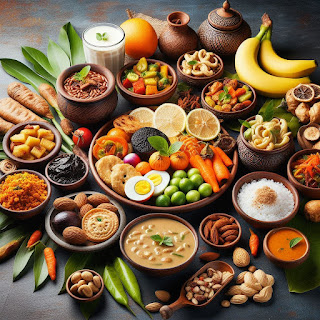2026-ல் ஆரோக்கியமான வாழ்க்கை

2026-ல் ஆரோக்கியமான வாழ்க்கை: புத்தாண்டுக்கான 10 எளிய ஊட்டச்சத்துத் தீர்மானங்கள் உணவியல் நிபுணர் – சரண்யா ஒவ்வொரு புத்தாண்டிலும், பலர் பின்வரும் முடிவுகளை எடுக்கிறார்கள்: 👉 “இந்த வருடம் நான் உடல் எடையைக் குறைப்பேன்” 👉 “சாதம் வேண்டாம், சர்க்கரை வேண்டாம், எண்ணெய் வேண்டாம்” ஆனால் 1-2 மாதங்களுக்குப் பிறகு, பெரும்பாலானோர் கைவிட்டுவிடுகிறார்கள். ஏன்? ஏனென்றால், கடுமையான உணவுக்கட்டுப்பாடுகள் தோல்வியடைகின்றன. ❌ கடுமையான உணவுக்கட்டுப்பாடுகள் ஏன் பலனளிப்பதில்லை? அவை மிகவும் கடுமையானவை பிடித்த உணவுகள் இல்லை → இது ஆசையைத் தூண்டுகிறது உடல் பலவீனமாகவும், சோர்வாகவும், எரிச்சலாகவும் உணர்கிறது எடை வேகமாக மீண்டும் கூடுகிறது (யோ-யோ விளைவு) 💡 உண்மையான ஆரோக்கியம் என்பது தீவிரமான விதிகளால் வருவதில்லை, மாறாக சிறிய பழக்கவழக்கங்களால் வருகிறது. பின்வரும் இந்த 10 எளிய ஊட்டச்சத்துத் தீர்மானங்களுடன் 2026-ஐ ஆரோக்கியமானதாகவும், மகிழ்ச்சியானதாகவும் மாற்றுவோம். 1️⃣ குறைந்தது 80% நேரம் வீட்டு உணவை உண்ணுங்கள் வெளி உணவுகளில் எண்ணெய், உப்பு மற்றும் சர்க்கரை அதிகமாக உள்ளது. ✔ தேர்வு செய்யுங்கள்: இட்லி, தோசை, பொங்கல...

